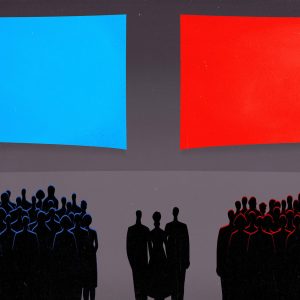 By Ben Sasse, Wall Street Journal
By Ben Sasse, Wall Street Journal
Humans are social, relational beings. We want and need to be in tribes. In our time, however, all of the traditional tribes that have sustained humans for millennia are simultaneously in collapse. Family, enduring friendship, meaningful shared work, local communities of worship—all have grown ever thinner. We are creating thicker, more vehement tribes around our political differences, I believe, because there is a growing vacuum at the heart of our shared (or increasingly, not so shared) everyday lives.
Loneliness is everywhere in the U.S., across every sector of society. A survey of more than 20,000 American adults conducted earlier this year by the health insurer Cigna and the market research firm Ipsos found that a majority of us are lonely, based on responses to the UCLA Loneliness Scale. The highest scores were reported by the youngest adults, ages 18 to 22. The researchers describe it as a “loneliness epidemic.”
None of this should surprise us. Americans today have fewer shared projects than our parents and grandparents did, and we belong to fewer civic groups. Because we change jobs more often, we have fewer lasting work friendships. We delay marriage, have fewer children and live in larger homes, more separate from those of our neighbors. We move from place to place for relationships, economic opportunity and better weather—and we end up with economic opportunity and better weather.
The Harvard social scientist Robert Putnam chronicled the collapse of associational, neighborly America in his book “Bowling Alone” (2000). In the nearly two decades since, the smartphone has further undermined any sense of place by allowing us to mentally “escape” our homes and neighborhoods. We can instantly connect with the supposedly more exciting lives of others. These moments add up, until we’re in an almost permanent state of dissociation, punctuated only by the most urgent demands of life, to which we tend halfheartedly.
None of us wants to be left out. The same isolation we felt at the edge of the cafeteria or as the last kid picked for kickball causes everyone to yearn for a group. Even though political ideology is a thin basis for intimate connections, at least our cable news tribes offer the common experience of getting to hate people together. As relational nomads, it’s far easier now to be together against something than for something. It’s not as fulfilling, but at least we’re not totally alone.
To read entire essay, click HERE
